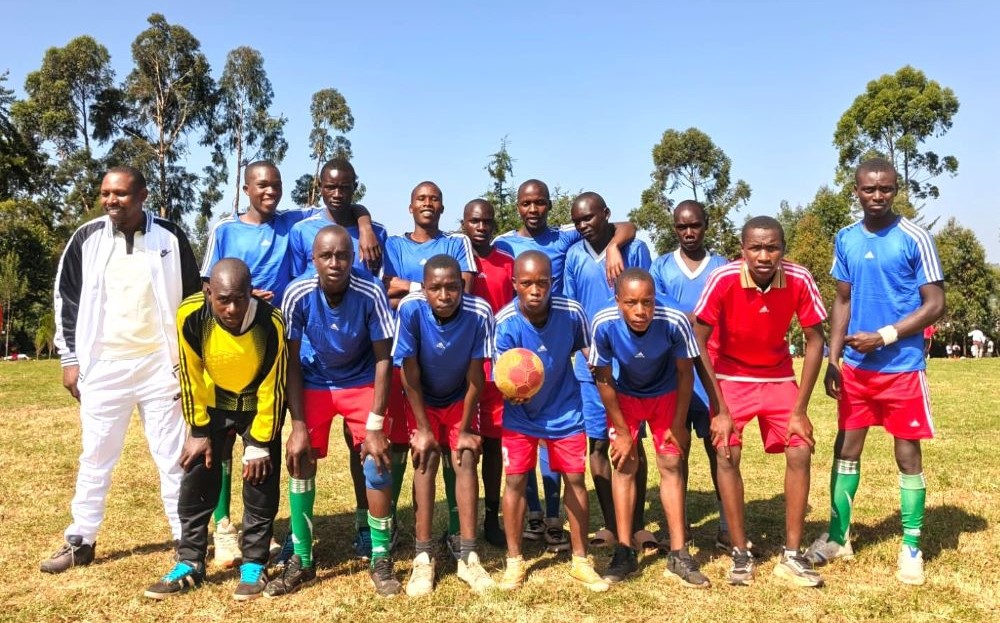Of all the losses that human beings encounter, death is the most painful. Divorce, separation, singlehood, or the absence of a parent may destabilize a family, but death is final and irreplaceable. For children, the psychological toll of death far outweighs the impact of other forms of parental absence. The death of one’s mother is often felt most deeply, though the loss of a father is equally shattering. Either way, children find themselves carrying an emotional weight that inevitably shapes their growth, their relationships and more immediately, their learning in school.
Widowhood is one of the most difficult experiences any family can go through, and when it strikes, its effects extend far beyond the surviving parent. The children are often the most vulnerable and one of the most visible areas where the impact manifests is in their education. The absence of a parent alters a child’s emotional, social, and economic environment in profound ways that either slow down or, in rare cases, accelerate their learning journey.
The first and most immediate effect of losing a parent is emotional distress. Children grieve differently from adults, and their grief is often complicated by the fact that they cannot fully grasp the permanence of death. What they do understand is the emptiness of absence. A child who once waited for a parent to return home, share a meal, or offer comfort suddenly finds themselves in a world that feels unsafe and unpredictable. This insecurity often translates into difficulty concentrating in class, declining interest in subjects they once enjoyed and a general dip in academic performance. Teachers may notice children becoming withdrawn, distracted or unusually irritable. Others may develop disruptive behaviors, not out of malice, but as a way of expressing grief that words cannot capture.
ALSO READ:
CSOs request for increased promotion slots as TSC implements 2019 CPG
The economic implications of widowhood further complicate matters. If the deceased parent was the main breadwinner, the family’s financial foundation is shaken. Suddenly, resources for school fees, uniforms, books, and other necessities become scarce. Some children are forced to transfer from well-equipped schools to less resourced ones, while others face interruptions in schooling altogether. The silent pain of watching peers progress smoothly while they struggle to keep up can be devastating. In extreme cases, reduced household income also leads to malnutrition, which directly affects energy levels, concentration and cognitive growth. Learning becomes a distant priority when survival itself is under threat.
At home, family dynamics change in ways that affect how children experience school. The surviving parent is often forced to juggle multiple roles, assuming responsibilities that were previously shared. Older children may find themselves stepping in as caregivers for younger siblings, helping with household chores, or contributing to small income-generating activities. While these roles may build resilience and responsibility, they also steal valuable time and energy that could have gone into homework, revision and participation in extracurricular activities. Fatigue and stress silently erode the child’s capacity to focus on schoolwork, creating invisible barriers to learning.
Beyond the walls of the home, widowhood exposes children to societal attitudes that shape their educational experiences. In some communities, widowhood carries stigma. The children of widows may be subjected to ridicule, pity or exclusion from peers. Such experiences can severely undermine self-confidence, making a child reluctant to raise their hand in class, engage in group discussions or seek help from teachers. Over time, the weight of social isolation chips away at their academic engagement. A child who feels unseen and unsupported among peers can easily slide into a cycle of underachievement, not because of lack of ability, but because of diminished motivation.
ALSO READ:
Prime CS Mudavadi pledges to complete stalled Malava Boys dormitory
Another critical factor is the reduced parental support that often accompanies widowhood. The surviving parent, weighed down by grief and the burden of sustaining the family, may lack the emotional or physical capacity to monitor the child’s academic progress.
Many widows work long hours or multiple jobs to make ends meet, leaving little time for supervising homework, attending school functions, or offering the encouragement that children desperately need. The absence of one parent and the stretched capacity of the other creates gaps that schools may not always have the resources to fill. Left without consistent guidance, children are forced to navigate academic challenges on their own, often with mixed results.
Yet, it is important to recognize that widowhood does not always translate into educational decline. For some children, the experience instills resilience, independence, and a heightened drive to succeed. The memory of the deceased parent becomes a source of inspiration, motivating them to excel in school as a way of honoring their loved one.
Others draw strength from the sacrifices of the surviving parent, channeling admiration into determination. Teachers, relatives and community members who step in to provide emotional and material support can transform grief into resolve. History and everyday life are filled with stories of individuals who, despite losing a parent early, rose above their circumstances to achieve academic and professional excellence.
ALSO READ:
President Ruto appoints Prof. James Onyango Owino as Non-Executive Chairperson of CUE
The long-term effects of widowhood on a child’s education largely depend on the support systems available to them. Counseling, both at home and in school, can help children process grief and regain emotional balance. Financial aid from relatives, community initiatives or scholarships can cushion the family against economic shocks and keep children in school. Equally vital is the role of teachers and school administrators. Children from widowed families need sensitivity, encouragement and sometimes extra academic attention. Simple acts of kindness such as listening, mentoring and creating safe spaces for expression can make a profound difference in their ability to adjust and thrive.
Ultimately, widowhood is a life-altering event that reshapes a child’s educational journey in deep and multifaceted ways. It touches their emotions, their social standing, their economic well-being and the structure of their daily lives. Left unaddressed, it can derail their academic progress and close doors to future opportunities. But with empathy, deliberate intervention and a supportive community, children of widows can still thrive. Education is not only about classrooms and books; it is about nurturing environments where, even in the face of devastating loss, children can discover hope, resilience and the promise of a brighter future.
By Ashford Kimani
Ashford Kimani teaches English and Literature in Gatundu North and serves as Dean of Studies.
You can also follow our social media pages on Twitter: Education News KE and Facebook: Education News Newspaper for timely updates.
>>> Click here to stay up-to-date with trending regional stories
>>> Click here to read more informed opinions on the country’s education landscape






